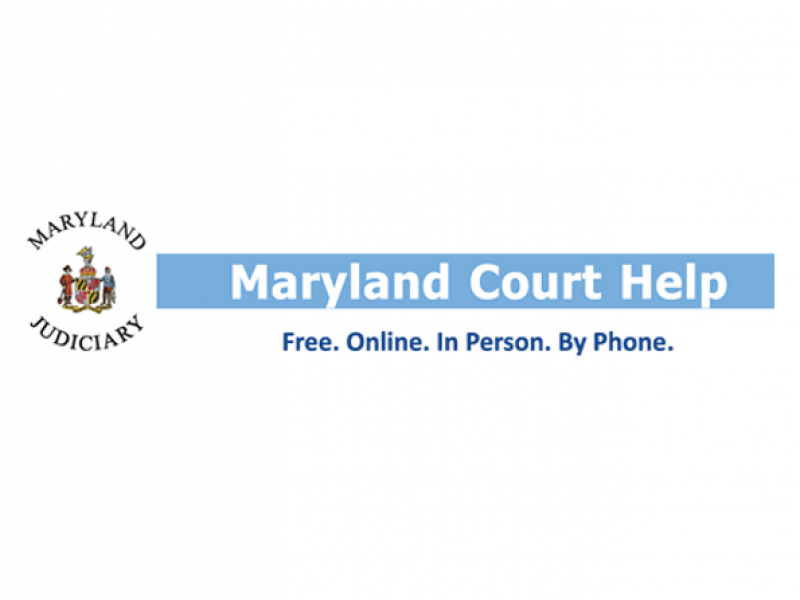
Document Author(s):
Year Published:
Topics:
State:
Region:
News: Self-Help Innovations in Maryland (News 2021)
The Maryland Court Help Center 2021 Provider Conference offered a glimpse into some of the cutting edge innovations in self-help in the COVID era.1
- Court Help Center Knowledge Base
Maryland Court Help Providers have access to the Court Help Center Knowledge Base, designed specifically with providers in mind. This tool allows users to access a repository of articles written by lawyers to assist court help providers in understanding common case procedures, changes in laws, and can be used to assist pro bono attorneys deliver assistance to their clients. Using FlowLu, the Court Help Center Knowledge Base also serves as a channel for the Maryland Judiciary to quickly share information across help centers in the state. “This tool can be used in those moments when asking a colleague through email is too slow to get someone the help they need,” says Matthew Smith. By using the Knowledge Base, help can be delivered without delay.
Contact Matthew Smith, [email protected], to learn more about the Court Help Center Knowledge Base.
- Maryland Justice Passport
The Maryland Justice Passport is a public facing innovation. The tool functions like a portal for self-represented litigants and enables a Court Help Provider to access a users case summary, court documents, and set tasks and calendar events to help SRLs track their progress. A provider can simply ask, “do you have a justice passport?” and, if a customer has an account, the provider can quickly pull up a summary of the SRLs information and status. This allows a different provider to pick up where their colleague left off. Sarah Coffey Bowes shared that the purpose of the tool is “to prevent retraumatization,” and ensure customers know “where they have been, where they need to go, and what they need to do.” The tool is equipped with a dashboard, notes, events, and even able to store files and track tasks. Using this tool, SRLs are able to control their legal issues and keep track of their progress.
Contact Sarah Coffey Bowes, [email protected], to learn more about the Maryland Justice Passport.
- Doubling Down on Outreach
During the public health emergency, Maryland Court Help Providers prioritized finding and connecting with as many Marylanders as possible to better understand the needs of their community and to identify gaps in their services. Strategies to better connect included:
1) Connecting with Community Groups
42% of Montgomery County residents are non-English speakers, therefore staff partnered with County Multicultural Affairs Offices, Police Department Hispanic Affairs Officers, public schools, public defenders, County Departments of Housing Affairs, among others. By partnering with these trusted community intermediaries, staff established ongoing relationships with local partners to develop pipelines to share court services information through regular calls, flyers and newsletters, recurring meetings and presentations, and in some cases even identified formal liaisons to enhance communication between the court help program and community partners.
2) Appearing on non-English media outlets
Nicolle Katrivanos, Supervising Attorney for the District Court Help Center in Rockville, appeared on local NBC 4/Telemundo Television Network to expand news coverage of available services directly to Spanish speaking residents. Nicolle specifically attributed a spike in usage of non-English services to her appearance on local Spanish news.
Contact Nicolle, [email protected], to learn more about strategies to reach non-English speakers about court services.
3) Connecting with Advocacy Groups
The LGBTQ+ community and other minority cultural identities in our country often feel excluded when their interaction with the justice system inherently excludes their experience. For example are court forms that use “husband & wife” to describe spouses exclude same-sex couples. Leadership from Maryland’s Judicial Council Equal Justice Committee reinforced the idea that fairness is a feeling, and to ensure someone feels fairly treated, we all have to own what we don’t know. “Go into your interactions without making assumptions,” said Michelle Zavos, Partner at Zavos Law Firm, and she encouraged self-help staff to engage with advocacy organizations such as Lambda Legal, the American Civil Liberties Union, and other Maryland based LGBTQ+ groups to help bridge gaps in community understanding.
Explore the resources Maryland Court Help Center Providers turn to for their work:
- Best Practices for Maryland Court Help Centers (PDF)
- Maryland Court Help Center Outreach Kit (PDF)
- Maryland Court Help Accommodations Resources (Webpage)
Visit the Maryland Court Help Center Provider Conference page to view the agenda and to find links to slides and resources shared throughout the conference.
1 Maryland’s court help ecosystem consists of a number of programs that deliver statewide coverage to Marylanders seeking assistance. There are three primary court help center programs, the District Court Help Resource Centers, the Circuit Court Help Center, and the Family Law Help Centers, that come together for this annual conference. and together they deliver statewide coverage to Marylanders seeking assistance. The District Court Help Resource Centers and the Circuit Court Help Center are operated by the Maryland Center for Legal Assistance (MCLA), and the Family Law Help Centers are funded as part of family services jurisdictional grants from the Maryland Judiciary to individual circuit courts.